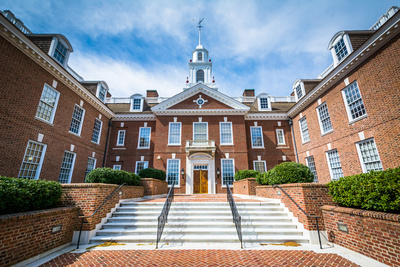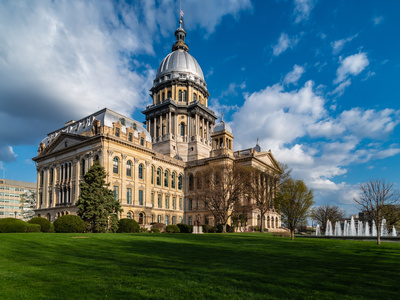-000055-400px.jpeg)
Tax & Budgets, Health Care & Wellness
Here’s How States Are Responding to Trump’s One Big Beautiful Bill Act
October 8, 2025 | Abbie Telgenhof, Morgan Scarboro
April 18, 2019 | Ryan Maness

Voters in Chicago’s recent municipal elections have swept into power the most progressive slate of policymakers in a generation, and they could well have an indelible impact on the city’s tax and fiscal future. Six of the new City Council members are Democratic Socialists — one-tenth of the total seats — and many ran on an explicit platform of disrupting the political status quo and redistributing financial resources.
This class of politicians could find that task to be easier, given that aldermen have in recent years been working to shake off the reputation of being a rubber stamp for the mayor’s office and engaging in more legislative independence. The Chair of the City Council’s Progressive Caucus, Scott Waguespack (D), says that he is hopeful that the new left-leaning members will be able to move progressive legislation that had previously stalled in committee.
Only time will tell how well this City Council will work with the newly elected mayor, former prosecutor Lori Lightfoot (D), but her public statements suggest that the Mayor-elect is more predisposed to a political shakeup than her predecessor Rahm Emanuel. Specifically, with regard to tax policy, she has hailed a proposed constitutional amendment allowing for a state graduated income tax as a “bold change,” generally opposed to any revenue proposal that she sees as regressive, and stated that “additional revenue is going to be necessary in the short and intermediate terms.”
These new players enter government service at a time when Chicago and Illinois more generally are staring at a fiscal precipice. The Land of Lincoln boasts a host of dire fiscal statistics: the city has $42 billion in unfunded pensions liabilities, while the state has $133.5 billion in unfunded pension liabilities and an $8.2 billion unpaid payables backlog. Financial rating agencies are sounding alarm bells.
In an effort to confront these big fiscal problems, these newly empowered progressive policymakers may opt to take dramatic action to reshape the tax landscape to bring in new revenues. It isn’t clear exactly what legislation they might take up, but a financial transaction tax was much-discussed on the campaign trail. They could also follow the lead of other progressive city officials by pursuing a Seattle-style corporate “head tax” or the Portland (Oregon) gross receipts tax. Mayor-elect Lightfoot has also floated a value added tax (VAT) on large law and accounting firms.
If city officials are able to generate a political consensus around one of these plans, left-leaning lawmakers across the country would take notice. This legislative cross-pollination has contributed to Oregon considering a gross receipts tax of its own and to Philadelphia considering a congestion tax akin to what was just passed for New York City. If Chicago comes together around a plan to significantly raise taxes on upper-income individuals or businesses, then it would raise the probability that lawmakers in another jurisdiction could be inspired to follow suit.
With the rise in prominence of politicians like U.S. Senator Bernie Sanders and U.S. Representative Alexandria Ocasio-Cortez, the Democratic party is in the process of fundamentally reevaluating many of its fiscal policy positions. As the party’s left flank embraces the “socialist” label, they may also seek a new vision of the party’s tax and fiscal policies at the state and local level. If this class of Chicago lawmakers decides to fill that void, their actions could reverberate well beyond the borders of the Windy City.
-000055-400px.jpeg)
October 8, 2025 | Abbie Telgenhof, Morgan Scarboro

August 5, 2025 | Morgan Scarboro

July 30, 2025 | Bill Kramer